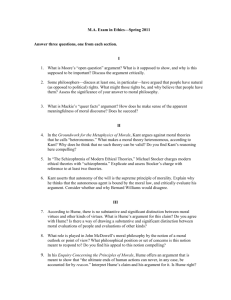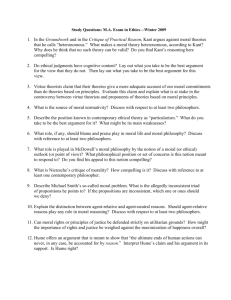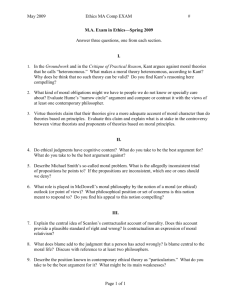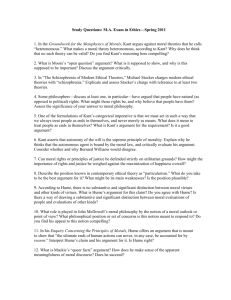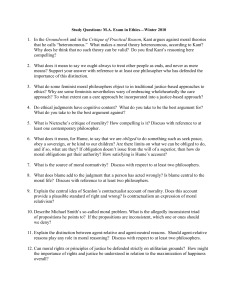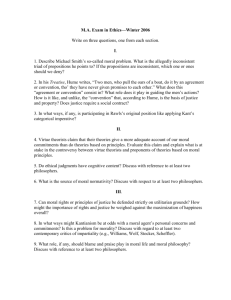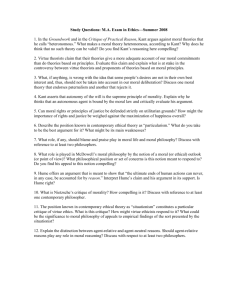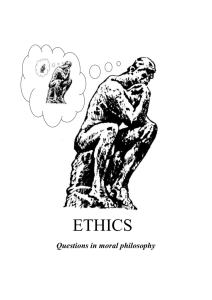doc
advertisement
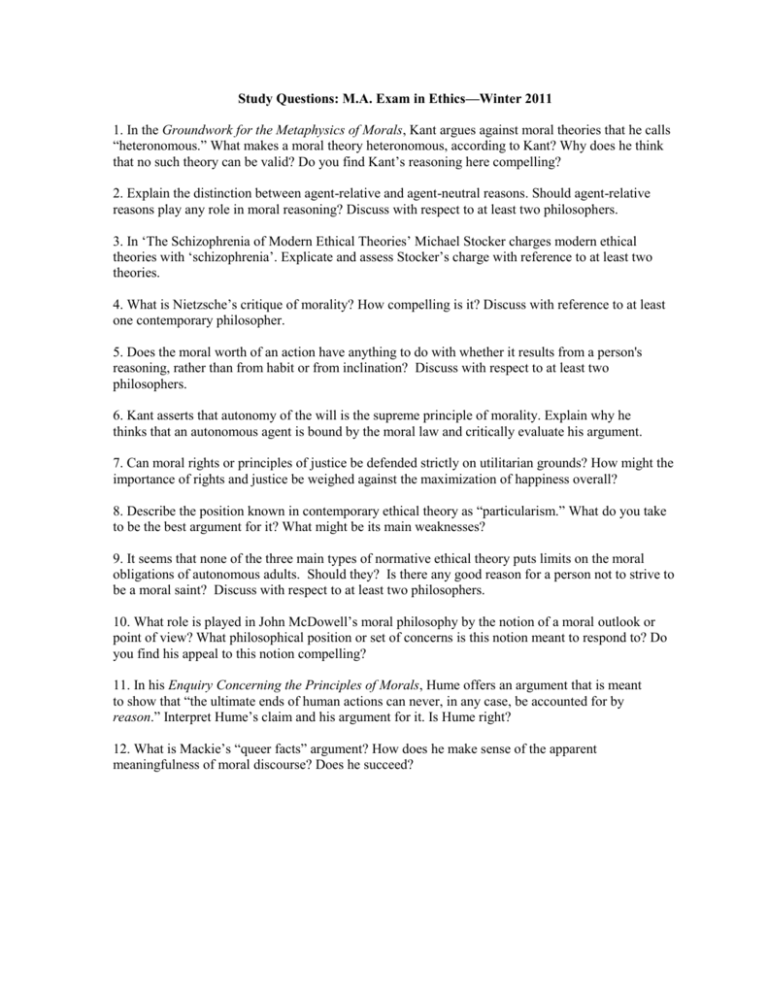
Study Questions: M.A. Exam in Ethics—Winter 2011 1. In the Groundwork for the Metaphysics of Morals, Kant argues against moral theories that he calls “heteronomous.” What makes a moral theory heteronomous, according to Kant? Why does he think that no such theory can be valid? Do you find Kant’s reasoning here compelling? 2. Explain the distinction between agent-relative and agent-neutral reasons. Should agent-relative reasons play any role in moral reasoning? Discuss with respect to at least two philosophers. 3. In ‘The Schizophrenia of Modern Ethical Theories’ Michael Stocker charges modern ethical theories with ‘schizophrenia’. Explicate and assess Stocker’s charge with reference to at least two theories. 4. What is Nietzsche’s critique of morality? How compelling is it? Discuss with reference to at least one contemporary philosopher. 5. Does the moral worth of an action have anything to do with whether it results from a person's reasoning, rather than from habit or from inclination? Discuss with respect to at least two philosophers. 6. Kant asserts that autonomy of the will is the supreme principle of morality. Explain why he thinks that an autonomous agent is bound by the moral law and critically evaluate his argument. 7. Can moral rights or principles of justice be defended strictly on utilitarian grounds? How might the importance of rights and justice be weighed against the maximization of happiness overall? 8. Describe the position known in contemporary ethical theory as “particularism.” What do you take to be the best argument for it? What might be its main weaknesses? 9. It seems that none of the three main types of normative ethical theory puts limits on the moral obligations of autonomous adults. Should they? Is there any good reason for a person not to strive to be a moral saint? Discuss with respect to at least two philosophers. 10. What role is played in John McDowell’s moral philosophy by the notion of a moral outlook or point of view? What philosophical position or set of concerns is this notion meant to respond to? Do you find his appeal to this notion compelling? 11. In his Enquiry Concerning the Principles of Morals, Hume offers an argument that is meant to show that “the ultimate ends of human actions can never, in any case, be accounted for by reason.” Interpret Hume’s claim and his argument for it. Is Hume right? 12. What is Mackie’s “queer facts” argument? How does he make sense of the apparent meaningfulness of moral discourse? Does he succeed?
